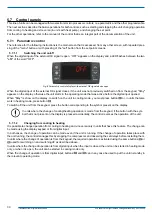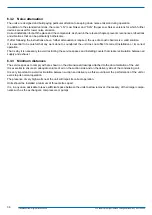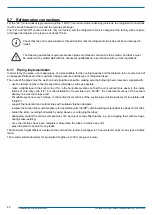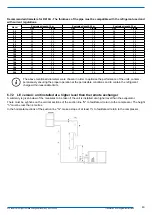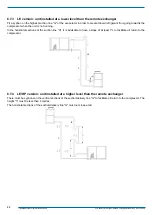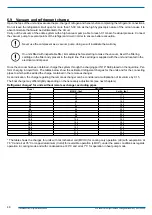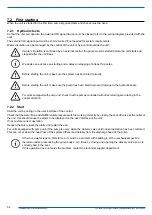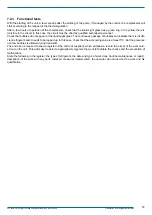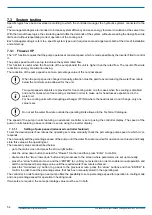
41
We reserve the right to make changes without any prior notice.
Translation from original instructions
6.6 Electrical connections
All electrical operations must be carried out by personnel having the necessary legal requirements, and trained and infor
-
med on the risks connected with these operations.
The sizing and characteristics of the power lines and relevant components must be determined by staff qualified to design
electrical systems, following the international and national regulations of the place of installation of the units in conformity
with the regulations in force at the time of installation.
To install components outside the unit, you must refer to the wiring diagram supplied with the unit.
The wiring diagram, along with the manuals, must be kept carefully and made available for future work on the unit.
Overview:
- The electrical connections must comply with the information shown in the wiring diagram attached to the unit and the
regulations in force in the place of installation.
-
grounding is required by law;
- The installer must connect the earth cable to the PE terminal on the earth bar situated in the electrical control panel.
-
Make sure the power supply voltage corresponds to the rated data of the unit (voltage, number of phases, frequency)
stated on the plate on the unit.
-
the standard power supply voltage (see specific wiring diagram) must not fluctuate by more than ±10% and the unba
-
lance between phases must always be less than 2%. If this does not occur, contact our technical department to choose
suitable protection devices.
-
Make sure the power line is correctly connected with a clockwise phase sequence.
- The control circuit power supply is taken from the power line via a transformer situated in the electrical control panel;
the control circuit is protected by fuses.
To fix the power cable, use power cable fixing systems that resist tensile and torsional stresses.
The weight of the cables must not be borne by the electrical connection system.
Make sure no voltage is present before carrying out any operation on electrical parts.
The cross-section of the cable and the line protection devices must correspond to those indicated in the
wiring diagram.
The connections to the electrical control panel must be made maintaining the stated IP protection rating.
If you use a residual current device to protect the power line, in units with inverter, use type "B" or "B+" resi
-
dual current devices, with minimum tripping threshold of 300 mA and delayed tripping.
If the circulation pumps are not installed on the unit, potential free contacts are available as accessory for
controlling the external pumps.
If the potential free contacts for controlling the circulation pumps are present, connect the pumps as shown
in the wiring diagram.
The electrical connections to potential-free contacts, which are powered by external sources, must be sui-
tably protected against overcurrent and earth faults.
The circuit of the potential-free contacts inside the electrical control panel is made using orange cable.




